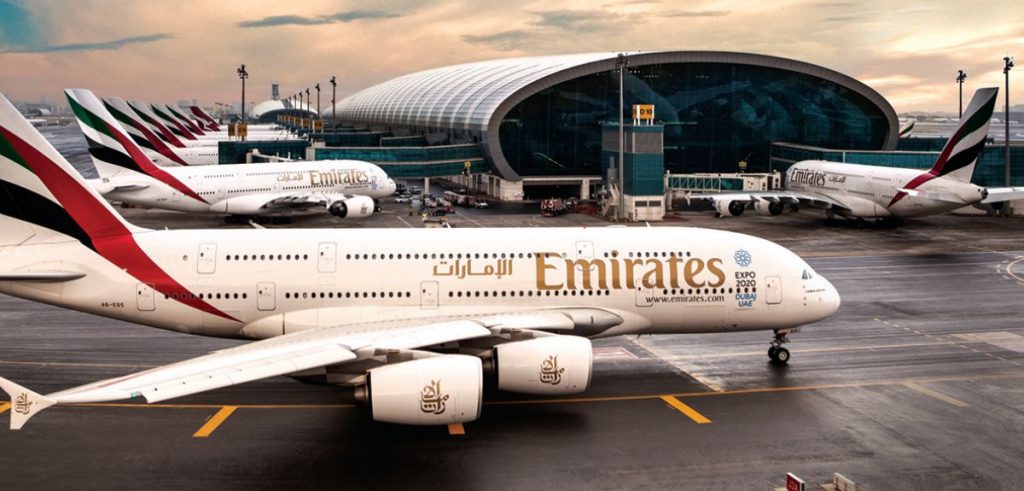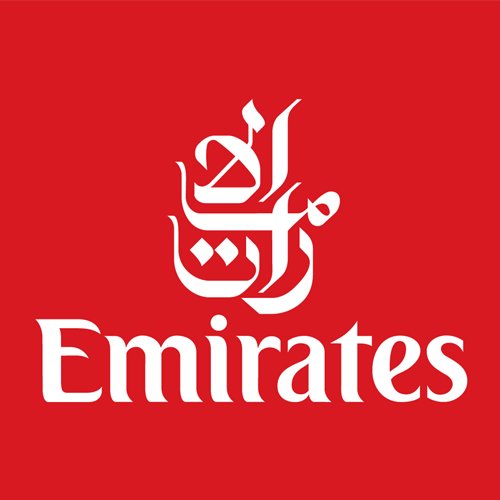Revenue generated from across Emirates’ six regions continues to be well balanced, with no region contributing more than 30% of overall revenues. Europe was the highest revenue contributing region with AED 23.9 billion (US$ 6.5 billion), unchanged from 2015-16. East Asia and Australasia follows closely with AED 22.6 billion (US$ 6.2 billion), up 1%. The Americas region recorded revenue growth at AED 12.4 billion (US$ 3.4 billion), up 3%. Gulf and Middle East revenue increased by 4% to AED 8.7 billion (US$ 2.4 billion) whereas revenue for Africa declined by 4% to AED 8.7 billion (US$ 2.4 billion). West Asia and Indian Ocean revenue decreased by 3% to AED 7.4 billion (US$ 2.0 billion).
Emirates continued to invest in refreshing its product and services in line with changing customer needs. The airline revealed its enhanced A380 Onboard Lounge which will enter service in July 2017, and announced a significant, multi-million dollar deal with Thales to equip its future Boeing 777X fleet with Thales’ AVANT in-flight entertainment system.
Other key initiatives in 2016-17 include: a US$11 million makeover of its Business Class Lounge at Concourse B in Dubai International Airport; the opening of a new Emirates Lounge in Cape Town, and the introduction of new onboard amenities for passengers in all classes, including sustainable blankets in Economy Class made from 100% recycled plastic bottles and using ecoTHREAD™ patented technology.
For 2017-18, Emirates has announced new routes to Phnom Penh in Cambodia and Zagreb in Croatia, aside from capacity upgrades to existing destinations.


In an airfreight market that remained challenging with fast-changing demand patterns, Emirates’ cargo division reported a revenue of AED 10.6 billion (US$ 2.9 billion), a decline of 5% over last year, while tonnage carried slightly increased by 3% to reach 2.6 million tonnes.
This year, freight yield per Freight Tonne Kilometre (FTKM) decreased by 8%, reflecting the strong downward trend across the industry, and the weakening of major currencies against the US dollar.
Emirates’ SkyCargo’s total freighter fleet remained unchanged, with 15 aircraft: 13 Boeing 777Fs, and two Boeing 747-400Fs. In addition to belly-hold capacity to Emirates’ new passenger destinations, Emirates SkyCargo launched new freighter services to Phnom Penh (Cambodia), as well as new links between Dubai-Oslo and Delhi-Hong Kong.
During 2016-17, Emirates SkyCargo inaugurated Emirates SkyPharma, a 4,000 square metre, purpose-built facility dedicated to the timely and secure transport of temperature sensitive pharmaceutical shipments at Dubai International Airport; and launched White Cover Advanced, a protection solution designed for temperature-sensitive cargo.
Emirates’ hotels recorded revenue of AED 738 million (US$ 201 million), an increase of 5% over last year in a highly competitive market mainly in the UAE.
dnata performance
In its 58 years of operation, 2016-17 has been dnata’s most profitable yet, crossing AED 1.2 billion (US$ 330 million) profit for the first time. Building on its strong results in the previous year, dnata’s revenue grew to AED 12.2 billion (US$ 3.3 billion), up 15%. dnata’s international business now accounts for 66% of its revenue.
This substantial revenue increase was achieved through organic growth, and bolstered by its new acquisitions of dnata Aviation Services in the US in April 2016 and Air Dispatch in the Czech Republic in July 2016, in addition to an increase in its shareholding of Oman United Agencies Travel in Oman, and the full year impact of dnata Brazil acquired during the previous year.
Building on last year’s record levels of investment, dnata continued to lay the foundations for future growth by investing more than AED 1 billion (US$ 272 million) into developing its people, facilities, technology and new acquisitions.
In 2016-17, dnata’s operating costs increased accordingly by 15% to AED 11.0 billion (US$ 3.0 billion), reflecting the impact of integrating the newly acquired companies mainly across its international airport operations.
dnata’s cash balance remains very solid at AED 3.4 billion (US$ 926 million) and close to last year’s record high. The business delivered an AED 1.3 billion (US$ 350 million) cash flow from operating activities in 2016-17, which is similar to last year’s company record.
dnata’s employee strength increased to over 40,000, a 20% substantial growth which includes employees from its newly acquired companies. With the business’ growing international footprint, dnata’s staff ratio based outside the UAE has further increased to 56%.
Revenue from dnata’s UAE Airport Operations, including aircraft and cargo handling increased by 6% to reach AED 3.0 billion (US$ 823 million).
In line with revenue growth, the number of aircraft handled by dnata in the UAE increased 2% to 216,000, and Cargo handling by 4% to 714,000 tonnes showing a first turnaround sign of the cargo industry’s ongoing malaise.
During the year, dnata also inaugurated its new AED 25 million export customer service centre and cargo integrated control centre in the Dubai Airport Free Zone, enhancing its overall product offering for airlines, freight forwarders and shippers.
dnata’s International Airport Operations division grew revenue substantially by 59% to AED 3.3 billion (US$ 906 million), on account of increasing business volumes and newly acquired businesses in the US, as well as the full year impact of dnata Brazil and dnata BV (Netherlands).
International airport operations now represent the largest business segment in dnata by revenue contribution. The number of aircraft handled by the division more than doubled within a year by 129% to 408,000, and Cargo noted a substantial growth of 56% to 2.1 million tonnes of handled goods, mainly driven by the full year consideration of dnata BV which was acquired in the last financial year.
Revenue from dnata’s Travel Services division has seen a slight decline of 5% to AED 3.1 billion (US$ 854 million). The underlying total transaction value (TTV) of travel services sold decreased by 9% to AED 10.7 billion (US$ 2.9 billion). These trends are the reflection of lower travel demand mainly from Corporates and Government entities in the Gulf region as well as the decline in value of the British pound against the US dollar after the Brexit decision.
dnata’s Catering business accounted for AED 2.0 billion (US$ 547 million) of its total revenue, up 7%. The inflight catering business uplifted more than 60 million meals during the year, an increase of 7% on account of higher volumes in a number of markets and in line with revenue growth. During the year, it opened a new purpose-built facility in Cairns, extending dnata’s network of kitchens in Australia to 11, and completed the build of a new Melbourne facility which will commence operations in mid-2017.















































